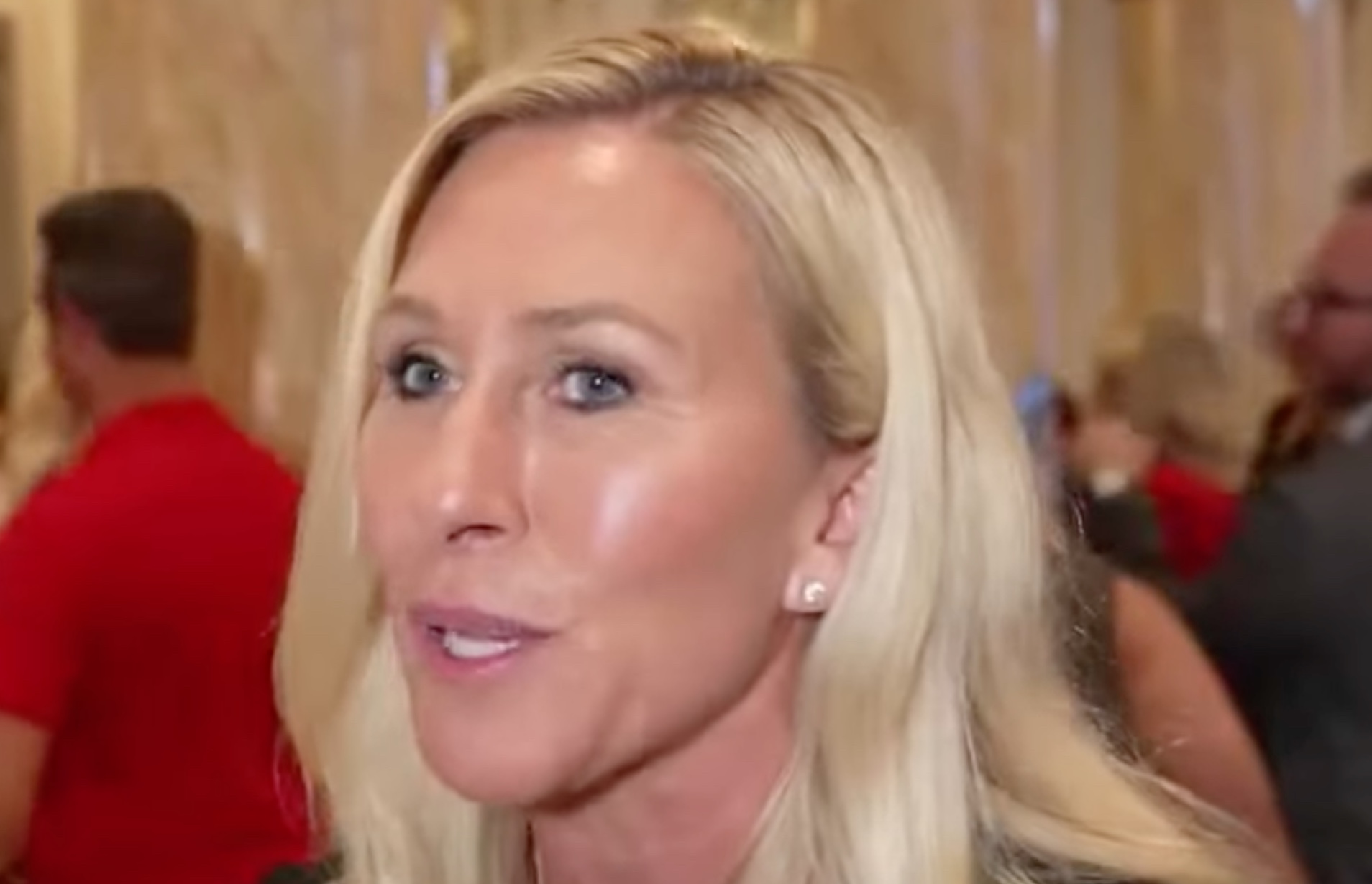
Rep. Marjorie Taylor Greene is advocating for the termination of all federal funding to New York, the fourth most populous state in the US.

The Georgia Republican expressed her intention to urge House Speaker Mike Johnson to “defund” New York following the conviction of former President Donald Trump on 34 felony charges linked to “hush money” payments to Stormy Daniels.

Greene made these statements in an interview with Steve Bannon on the television channel Real America’s Voice.

“I think the American people have turned a corner after they watched that conviction come down in New York, to the point where it’s like, you know what? Screw New York,” Greene said. “New York doesn’t deserve a damn penny. We shouldn’t fund them one single dime.”

The state, with a population of 19.6 million, received $383 billion in federal spending in the fiscal year 2022 as per the state comptroller’s report.

Additionally, Greene’s fellow GOP colleagues from New York, many of whom depend on the federal funding they’ve secured for their reelection campaigns, are unlikely to support her proposal.

Greene’s entry into national politics came during the 2020 election cycle when she secured the Republican nomination for Georgia’s 14th congressional district. Her victory in the general election propelled her into the national spotlight, where she quickly established herself as a lightning rod for controversy.

Greene’s public statements and social media activity have often courted controversy, with her espousal of conspiracy theories and contentious viewpoints drawing condemnation from across the political spectrum.

Her past support for the QAnon conspiracy theory, which alleges the existence of a secret cabal of pedophiles and global elites, has been particularly scrutinized, leading to calls for her censure and removal from congressional committees.

A glaring inconsistency in Greene’s stance is that Georgia, her home state, is where one of the four criminal cases against Trump is happening.

Despite previously highlighting the federal funding she brought back to her district, even though she voted against the bill that allocated it, it is challenging to envision her advocating for a complete cutoff of federal funds to Georgia.

Greene’s political approach holds sway in certain right-wing circles, and there is a possibility that other staunch Republicans may adopt similar positions in response to the outrage over Trump’s conviction.

The confrontational style and partisan rhetoric employed by Marjorie Taylor Greene have contributed to the deep partisan divides within Congress.

Her vocal and unapologetic advocacy for conservative principles, coupled with her willingness to challenge establishment norms, has endeared her to some while drawing fierce criticism from others.

In her capacity as a congresswoman, Marjorie Taylor Greene has taken positions on a range of policy issues, including immigration, gun rights, and healthcare.

Her advocacy for conservative values and her staunch opposition to Democratic policy initiatives have aligned her with the right wing of the Republican Party, earning her both supporters and detractors within the political landscape.

The controversies surrounding Marjorie Taylor Greene have led to calls for accountability and consequences from her political opponents, who view her actions and statements as harmful to the integrity of public discourse and the functioning of government institutions.

Efforts to censure and limit her influence within Congress have been met with resistance from her supporters, highlighting the broader societal divisions that her presence in politics represents.

